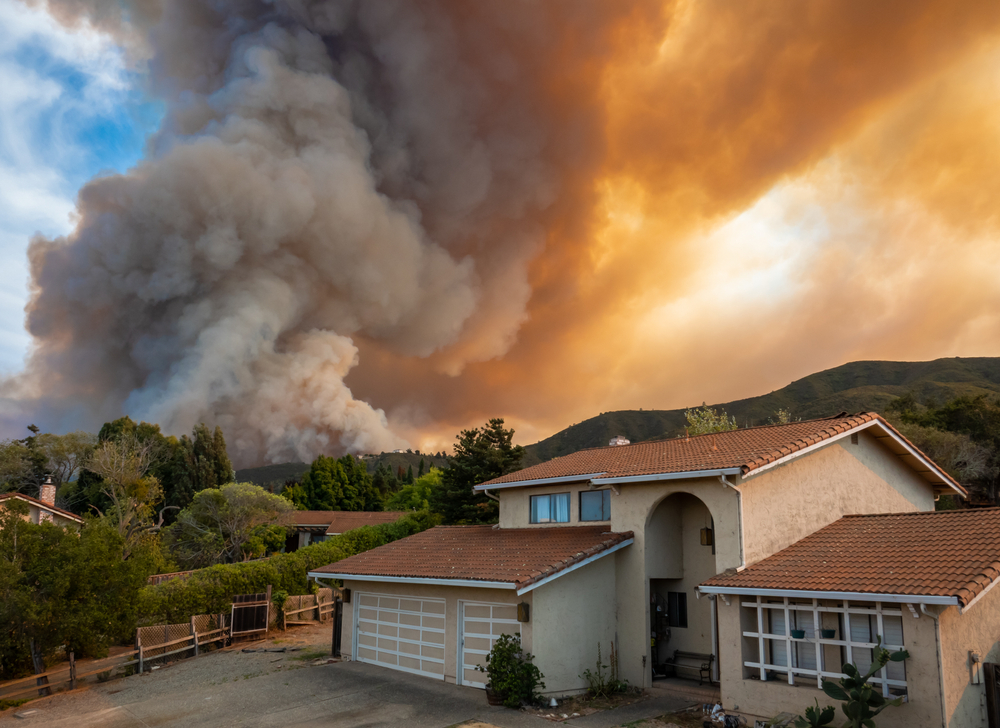California homeowners having trouble finding insurance coverage

Californians have experienced numerous wildfires this year and many of them are still burning out of control which has led to many homeowners having trouble finding homeowners insurance in California, particularly those that live in a fire prone area. As wildfires have worsened in the state, many insurance companies are dumping customers at renewal time and refusing to write policies in certain areas.
This has resulted in tens of thousands of homeowners in fire-prone areas being forced to move their coverage to the California FAIR Plan. The FAIR plan is the Golden State’s insurer of last resort. Unfortunately, the FAIR plan tends to be very expensive so homeowners forced to insure their homes via the FAIR plan will be paying a pretty penny to protect their home.
The Creek Fire will most likely add to the pain of homeowners. This fire has hit parts of Madera and Fresno counties, currently it has destroyed more than 300 homes and other buildings while burning over 163,000 acres.
A tough situation for homeowners and insurance companies
According to the California Department of Insurance, roughly 348,000 homeowners in high-risk wildfire areas lost their insurance coverage from 2015 to 2018, which includes 80,472 homeowners in Fresno County and 13,046 in Madera County.
“It’s just sad; I feel for these people,” said Sheri Lee of Kraft and Lee Insurance Agency in the Madera County community of Oakhurst in a recent Sacramento Bee article. “It’s been really bad for the last five years. The companies started (dropping policyholders) way before the Camp Fire.”.
On the other side of the coin, insurance companies claim that the extreme cost of wildfires and insurance regulations are forcing them to abandon certain areas of the state. Insurance companies paid out roughly $25 billion in claims from California wildfires in 2017 and 2018.
According to insurers, the biggest problem is with insurance regulations in the state. They say that the Department of Insurance will not allow them to raise premiums high enough to cover the risk of many properties, which is forcing them to abandon those customers when they come up for renewal.
“We have to allow the regular market to charge a price that reflects the risk,” said Rex Frazier, head of the Personal Insurance Federation of California in the Sacramento Bee article
The 10 costliest fires in U.S. history have all happened in California. If insurers are not allowed to charge a premium that actually covers their risk, they will stop writing policies in particular areas.
While the insurance industry feels it is possible to come to a solution, the California legislature failed to pass an industry-sponsored bill, AB 2167. This bill would have required insurers to write coverage in wildfire prone areas while also streamlining regulations to provide some rate relief to the insurance industry. The bill was eventually watered down to where it only would have required the Department of Insurance to study the issue. The legislation was eventually shelved.
“The higher rates traditional insurers are seeking would have served policyholders well. They’d still be “dramatically cheaper than the FAIR Plan,” said Frazier in the Bee article.
The FAIR Plan is never a great option
The FAIR plan was created in the 1960’s to help inner-city property owners who were having trouble finding coverage after the 1960’s riots.
The FAIR plan has become the last resort for many rural Californians who are no longer able to find homeowners insurance in the private market, mainly due to wildfire risks. As of this year, the FAIR Plan had 200,415 policyholders, which is up from 130,827 in late 2015.
Industry executives and insurance regulators both agree that the insurance market in California needs to be overhauled so homeowners can move out of the FAIR plan and into more traditional coverage but have not figured out how to make that happen.
Insurance Commissioner Ricardo Lara got behind bill, AB 2367, which would have required insurers to sell coverage to homeowners who’ve “hardened” their properties. This can be done by installing various upgrades to their home such as fire-resilient roofs. This bill was eventually shelved as well.
